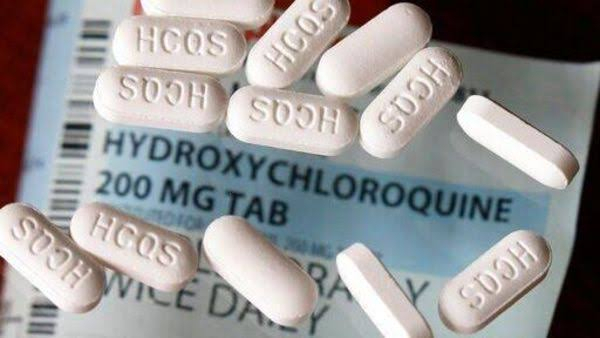The Food and Drug Administration (FDA) on Friday warned against prescribing malaria drugs chloroquine and hydroxychloroquine outside hospitals to treat Covid-19 after "serious" poisoning and deaths were reported. The drug, an antimalarial, was reportedly championed by President Donald Trump as a potential treatment for coronavirus.
The FDA said that it was aware of the increased use of the drugs through outpatient prescriptions and would like to caution both healthcare professionals and patients to know the risks associated with chloroquine and hydroxychloroquine. Chloroquine gained prominence after a study of the medicine on a small number of patients in France found that most patients taking the drug were cured a lot faster than the control group.
Chloroquine, hydroxychloroquine could be fatal

The FDA said that it learnt of "serious heart rhythmic problems" in patients with Covod-19 infection who were treated with antimalarial drugs hydroxychloroquine or chloroquine in combination with antibiotic azithromycin, commonly known as a Z-Pak. The FDA has also warned doctors to refrain from prescribing the drugs to treat the coronavirus outside of a hospital.
"We are also aware of increased use of these medicines through outpatient prescriptions. Therefore, we would like to remind health care professionals and patients of the known risks associated with both hydroxychloroquine and chloroquine," the FDA said. However, the FDA said that those who have been prescribed the drug for approved reasons like malaria or to treat autoimmune conditions like lupus, can continue to take those drugs.
"Hydroxychloroquine and chloroquine can cause abnormal heart rhythms such as QT interval prolongation and a dangerously rapid heart rate called ventricular tachycardia," the FDA wrote in it warning notice. The agency also said that it will continue to investigate risks associated with the use of hydroxychloroquine and chloroquine for coronavirus treatment and will keep updating the public.
Clinical trials of the drugs still on

There is still no proven treatment of coronavirus, which has killed more than 191,000 people globally. The FDA hasn't approved any drug or treatment for the deadly coronavirus although a lot of candidates are in different stages of trial. Health officials say that it would take at least 12 to 18 months to develop a vaccine.
The FDA said that clinical tests are still ongoing to determine hydroxychloroquine and chloroquine's actual effectiveness and it has authorized the drugs for "temporary use" in "hospitalized patients". Chloroquine is not a new drug but has been used for decades to treat malaria. FDA approved the drug as antimalarial in 1949. Hydroxychloroquine, a derivative of chloroquine, is prescribed to patients with rheumatoid arthritis and lupus.
However, the drug came to prominence in recent times after a small study on 36 patients in France in March found that most administered with the drug cleared the coronavirus from their system a lot faster than others. Donald Trump since then has touted it as a "game changer" in the fight against coronavirus. However, both hydroxychloroquine and chloroquine are known to have serious side effects, including muscle weakness and heart arrhythmia, which could be even fatal. Cardiologists across the world have been warning against the use of the drug as could be fatal for patients who are susceptible to heart conditions.








